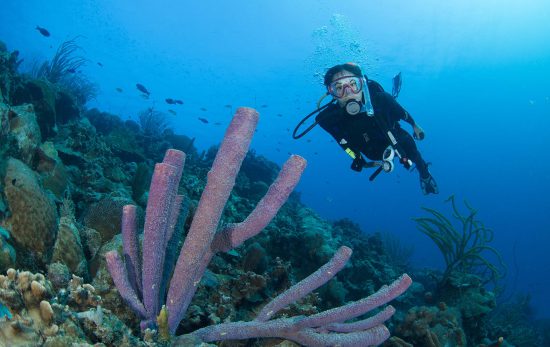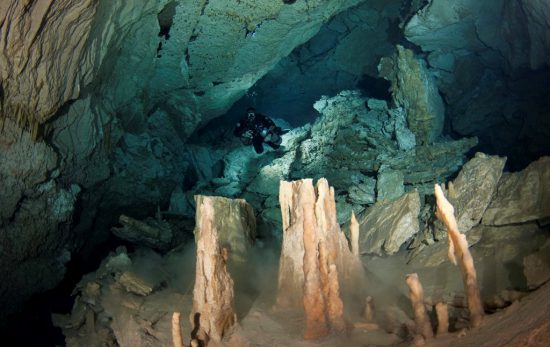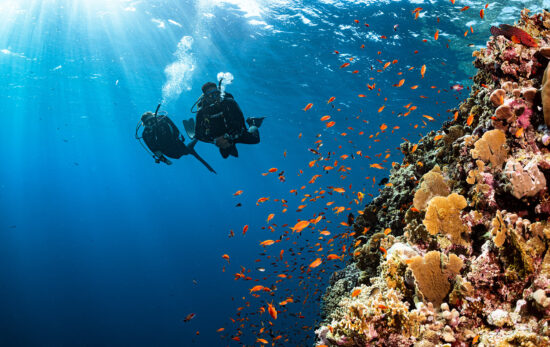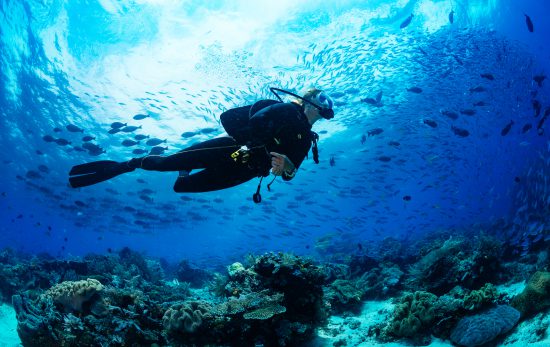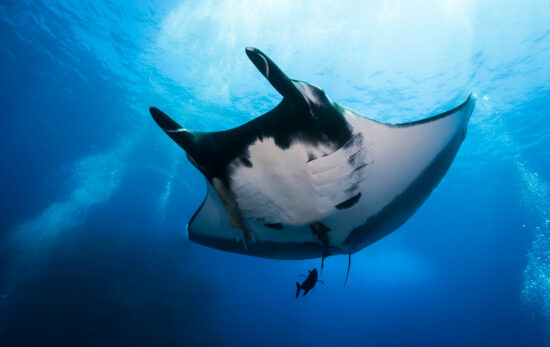When I first became serious about diving, I had it so easy. I went all out and signed up for an intensive PADI Instructor program. This program included all of the “core” PADI courses after Open Water Diver: Advanced Open Water Diver, Rescue Diver, Divemaster and Open Water Scuba Instructor, five specialty courses and the Emergency First Response Instructor course. That’s a lot of diving and a lot of learning in 10 weeks. But to qualify for the instructor course I needed to be a certified diver for six months and have 60 logged dives. It certainly took effort and commitment, but the easy part was that I didn’t have to choose what to do next because I had a goal. I wanted to become a PADI Open Water Scuba Instructor and teach scuba diving in a warm and tropical location. What could be better than that?!
However, this certainly isn’t the case for most divers. With so many enticing possibilities, indecision can be a bit of an affliction for divers after the PADI Advanced Open Water Diver course. Thinking about the next step as heading down one of two distinct paths helps simplify things. Let’s look at a summary of the two paths you can choose after you’ve completed your Advanced Open Water Diver course.
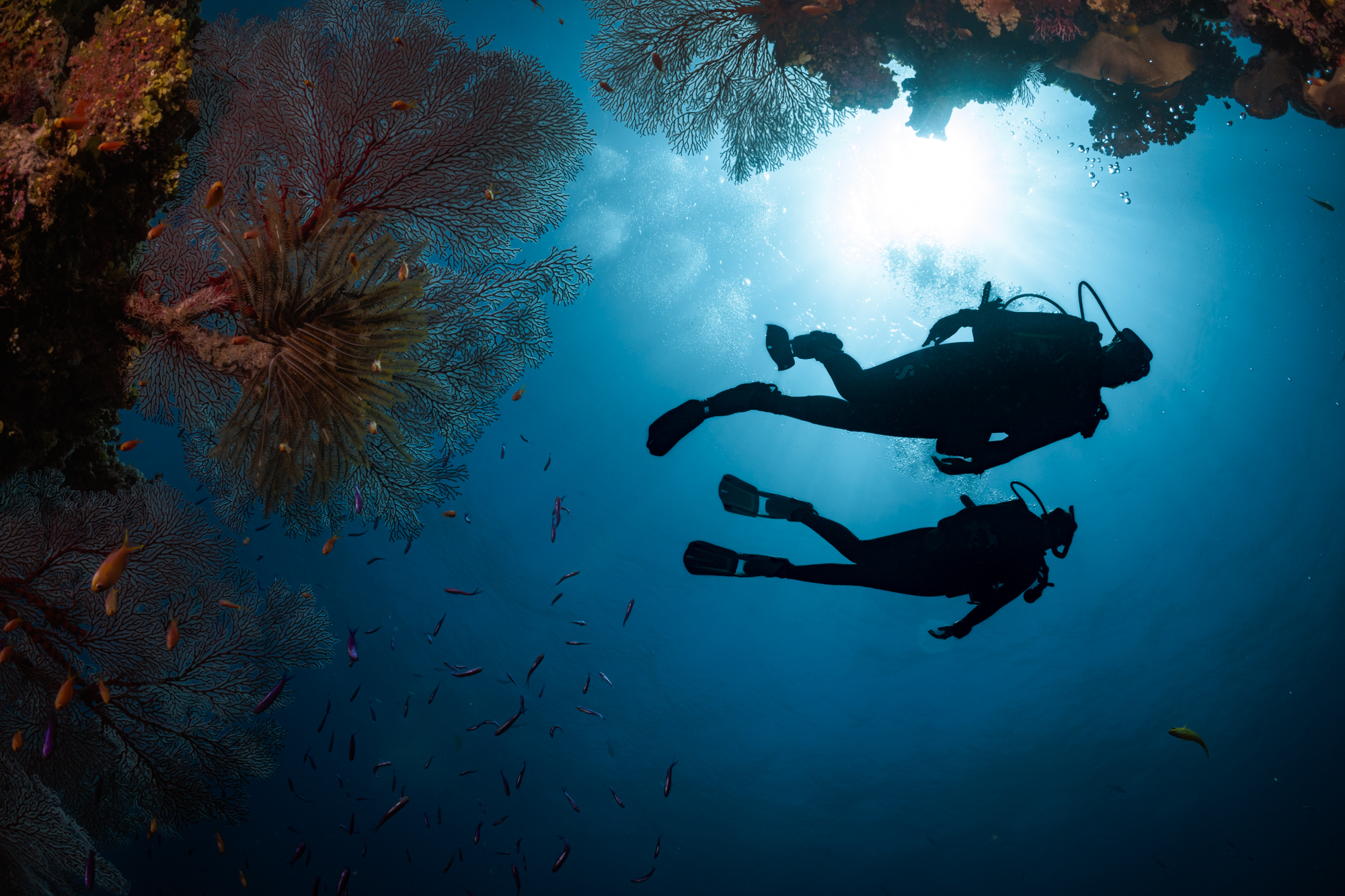
Path 1: Master Scuba Diver
The first path leads to earning your PADI Master Scuba DiverTM rating. This starts with completing a PADI Open Water Diver course, followed by the PADI Advanced Open Water Diver course and the PADI Rescue Diver course (or qualifying certifications). You also need to earn five PADI Specialty Diver certifications and log at least 50 dives. The good news is that Advanced Open Water Divers are already a good part of the way there.
PADI Master Scuba Diver (MSD) is the highest non-professional rating scuba divers can achieve. They are an elite group of respected divers with significant experience and training. Fewer than two percent of divers earn this highly-regarded certification. When you flash your Master Scuba Diver card, people know that you’ve spent time underwater in a variety of environments.
PADI Specialty Courses
One of the highlights of the Master Scuba Diver program is that you can choose which five specialty courses you take. You may want to choose specialties that apply to your local diving area, such as the Dry Suit Diver Specialty or Boat Diver Specialty. Alternatively, you can choose options that appeal to you most, such as the Wreck Diver Specialty or the Night Diver Specialty.
If you opt for specialty courses that correspond with the Adventure Dives you did on your PADI Advanced Open Water Diver course, then those dives may, at your instructor’s discretion, count towards your specialty certifications, too. PADI Advanced Open Water dives are known as ‘Adventure Dives‘, and these are also the first dives of any corresponding specialty course.
Join the Master Scuba Diver Challenge and Win Big!
The Master Scuba Diver Challenge is an exciting opportunity for divers to enhance their skills and win amazing prizes. Running from July 1 to December 31, 2024, this contest aims to help divers earn the prestigious PADI MSD rating, with a grand prize of a dream dive trip to the stunning Vilamendhoo Island Resort & Spa in the Maldives.
How to Enter the Master Scuba Diver Challenge: Participating is easy. Fill in the entry form on the MSD Challenge Entry Page and share your passion for diving. Earn extra entries by completing PADI courses or joining PADI Club.
The Prize: A trip for two to the Maldives! The grand prize includes six nights at the Vilamendhoo Island Resort & Spa, five days of diving with Euro-Divers, and round-trip airfare to Malé, Maldives. Two runner-up winners will receive a PADI eLearning course of their choice.
Located in the South Ari Atoll, Vilamendhoo offers luxurious accommodations, world-class dining, and exceptional diving experiences. The resort’s house reef and nearby dive sites provide opportunities to see whale sharks, manta rays, and vibrant coral formations.
Take the Plunge – Join the MSD Challenge Today! Becoming a Master Scuba Diver sets you apart as a committed and skilled diver. Don’t miss this chance to advance your diving skills and win extraordinary prizes. Enter the MSD Challenge today and continue your underwater adventure!
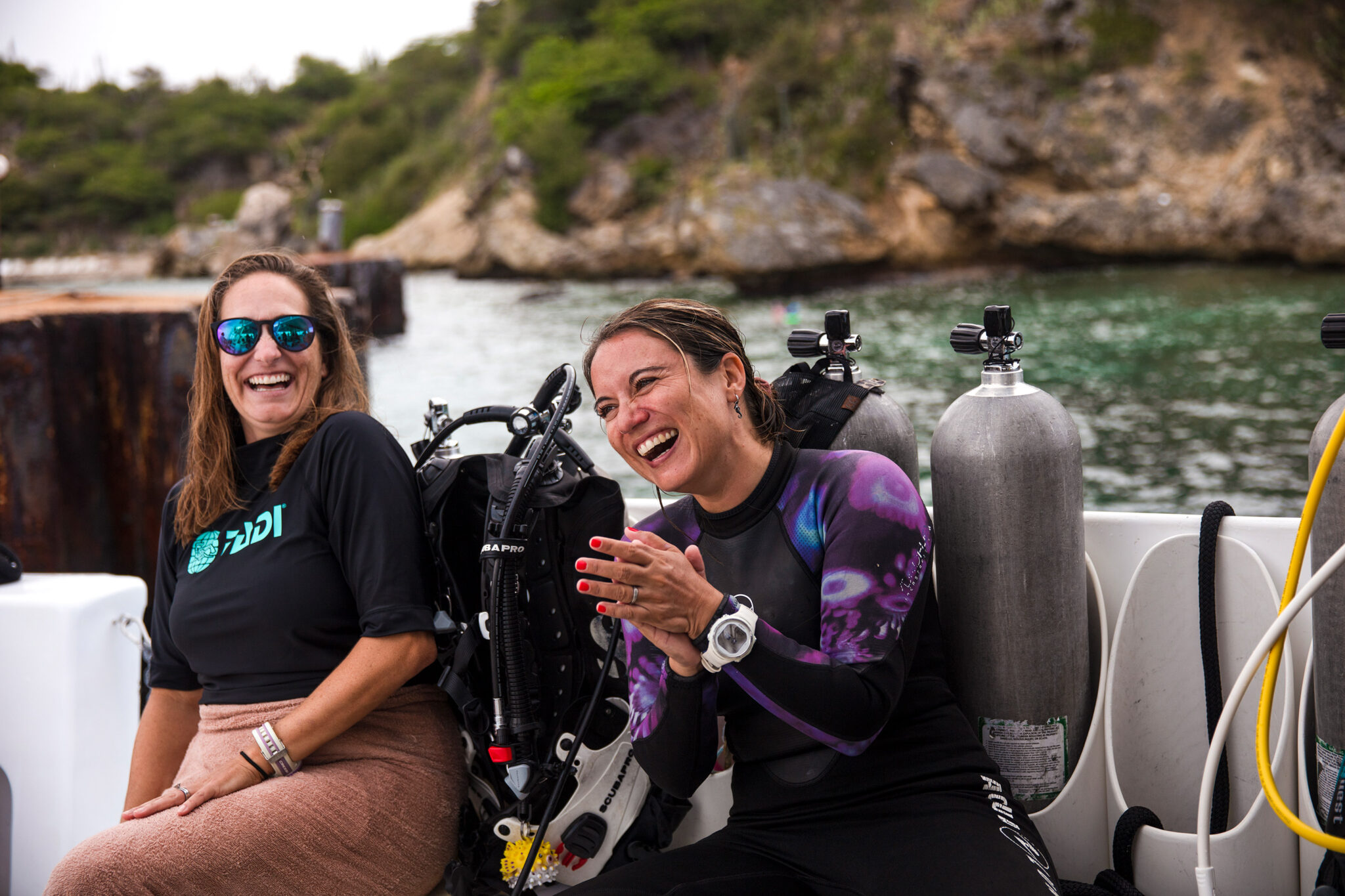
Path 2: PADI Professional
The second path is for those who are thinking about working in the diving industry. The next step, in this case, is becoming a PADI Divemaster or Instructor. If you enjoy being around others and have a passion for the underwater world, become a PADI Professional (or PADI Pro for short)!
Rescue Diver
If becoming a PADI Pro is your goal and you want to get there quickly, earning your Rescue Diver certification is the obvious next step. You’ll often hear this mentioned as the most challenging, yet most rewarding course divers ever take.
Rescue Divers learn to prevent and manage problems as well as develop more confidence in their dive skills. Additionally, they practice problem-solving skills until they’re second nature. It’s a serious, yet enjoyable, course that ultimately prepares divers to help others. To certify as a PADI Rescue Diver, you will also need to complete the Emergency First Response course (or other applicable first aid and CPR course). The Rescue Diver course is a fitting prerequisite for leadership-level training.
PADI Divemaster
After you’ve completed your Rescue Diver course, and have logged at least 40 scuba dives, you’ll continue to the PADI Divemaster course. As a Divemaster, you’ll be able to supervise scuba diving activities and assist PADI Instructors with scuba classes. PADI Divemaster is the first step in your professional diving career.
This course includes:
- Knowledge development sessions
- Water skills exercises and workshops
- Hands-on practical assessments
This will help you develop the skills to organize and direct a variety of scuba diving activities.
PADI Open Water Scuba Instructor
After the PADI Divemaster course, if you’d like to teach your own courses, the PADI Open Water Scuba Instructor (or Assistant Instructor) course is your next step. So, if you like people, have a passion for scuba diving and want an extraordinary life, become a PADI Instructor. Additionally, teaching scuba diving allows you to share your love of the aquatic world with others while doing what you enjoy – being in, around and underwater.
To become a PADI Instructor, you will need to complete a PADI Instructor Development Course (IDC). The Instructor Development Course is made up of two parts – the Assistant Instructor (AI) course and the Open Water Scuba Instructor (OWSI) program. Most dive professionals complete the entire IDC in one go and then attend an Instructor Examination (IE), which is the final step to becoming a PADI Instructor.
You earn a PADI Instructor rating through hard work and commitment, but you’re rewarded with a job that lets you share incredible underwater adventures with others, transforming their lives for the better and enriching yours, too.
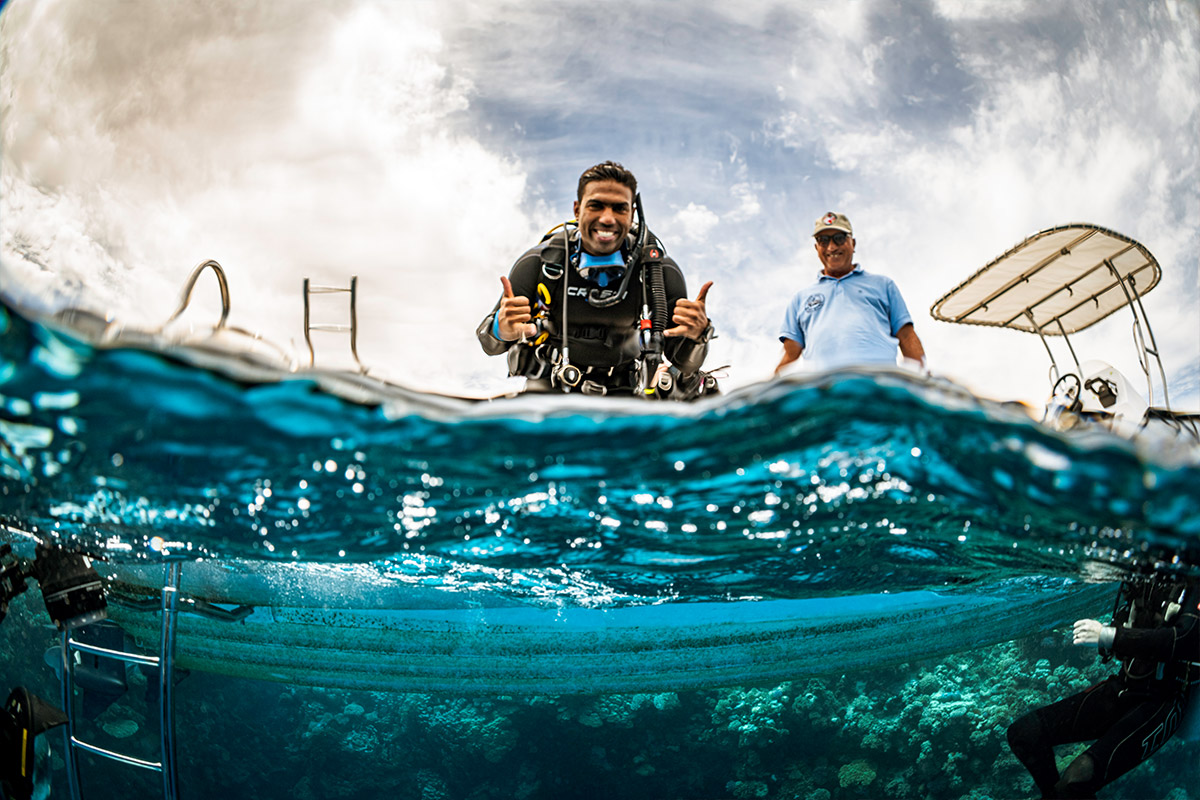
I made it to my goal of completing training all the way through PADI Open Water Scuba Instructor, and then I hopped on a plane, which took me to an incredible job in the Virgin Islands right after my course. So, where’s diving going to take you?
Psst…Did you know that the Advanced Open Water Diver and Rescue Diver eLearning courses along with many of the PADI Specialty eLearning Courses are 20% off when you join PADI Club? Check out all the membership benefits here.
